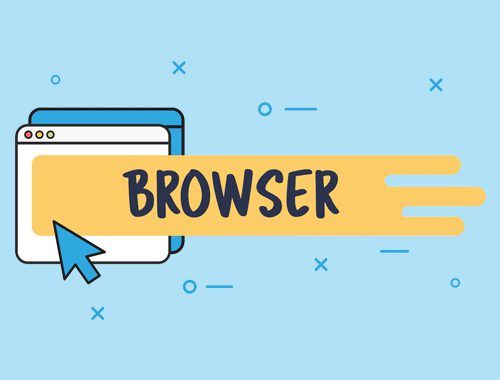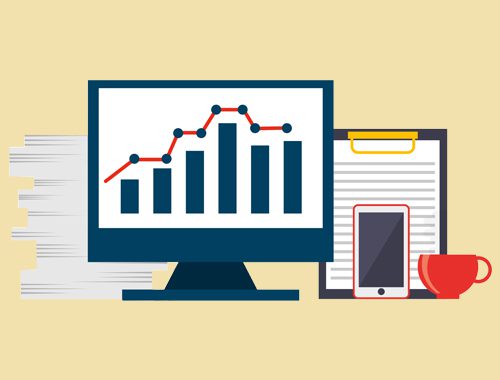Why Bing SEO is Important
In the bustling world of digital marketing, making sure your website gets noticed is no small feat. Many people fixate on Google and overlook Bing, which is a bit like forgetting a hidden gem that could shine just as brightly.
Although Bing may not carry the same global clout, it offers splendid opportunities to attract more visitors without breaking the bank.
Our exploration into this area has uncovered something quite interesting: Bing claims a 6.79 percent slice of the desktop search market share. This nugget of information convinces us that dedicating time to Bing’s SEO is well worth the effort.
Our article will walk you through why Bing SEO shouldn’t be ignored and how it can elevate your site’s visibility and traffic flow. Brace yourself for an enhancement in your digital marketing strategy with these insights!
Understanding Digital Marketing and Its Importance
Digital marketing helps businesses reach people online. It is vital for growth in today’s market.
Definition of digital marketing
Digital marketing refers to using the internet to promote products or services. It includes various channels like social media, email, and websites. We can reach many people through digital marketing.
This method is essential for businesses today.
Search engine optimisation (SEO) plays a key role in digital marketing. It helps improve our website’s visibility on search engines like Bing. With a 6.79 per cent market share among desktop searchers, Bing is an important option for us to consider in our strategies.
Bing SEO focuses on user experience and content quality, helping us connect better with potential customers while being cost-efficient compared to other platforms like Google ads.
Key takeaways
We see that Bing SEO is important for businesses, especially those wanting to reach local customers. While Bing has a smaller market share of 6.79 percent for desktop searchers, it offers cost-effective options for advertising.
Companies can get good results without spending too much.
On-page optimisation plays a key role in Bing SEO, just like it does with Google. We must focus on user experience because Bing values this highly in its ranking algorithm. Social signals and user engagement also matter, as they help improve website ranking on Bing searches.
With tools and guides available, we can enhance our strategies effectively by implementing keyword research and backlink building.
How digital marketing works
Digital marketing works by using different online channels to reach people. It connects businesses with their customers on the internet. We can use search engines, social media, emails, and websites to find our audience.
Each channel has its own way of grabbing attention.
Our goal is to attract organic traffic through methods like SEO. Bing SEO helps us gain visibility where it counts most. With a market share of 6.79 per cent for desktop searchers, Bing gives us an edge in local advertising at a lower cost than Google ads.
On-page optimisation plays a big role here as we focus on user experience and engagement to rank better in searches.
Types of digital marketing channels
Digital marketing channels come in many forms. We can use social media, email, search engines, and websites to reach our audience. Each channel has its own strengths.
Search engine optimisation (SEO) is essential for both Bing and Google. It helps people find us online through organic search traffic. On-page SEO techniques like keyword optimisation also play a crucial role in how we rank on these platforms.
For local businesses, using Bing SEO can be a great way to connect with nearby customers at a lower cost. With Bing holding a market share of 6.79 percent for desktop searches, it’s worthwhile for marketers to consider all available channels.
The Relevance of SEO in Digital Marketing
SEO is key to reaching more customers online. It helps our websites appear on search engines like Bing. This means we can attract visitors who are looking for what we offer. Understanding SEO allows us to stand out in a crowded market.
We should explore how it can boost our digital marketing efforts!
Definition and purpose of SEO
Search engine optimisation (SEO) helps websites rank better on search engines like Bing. Its purpose is to increase visibility and attract more visitors. Optimising our site for Bing can lead to lower advertising costs, especially for local businesses that want a wider reach.
Bing has a market share of 6.79 percent among desktop users, making it a valuable option.
On-page SEO involves improving elements on our website, such as using exact match keywords and optimising domain names. User experience also plays a big role in ranking higher on Bing, just like Google does.
By engaging users and focusing on social signals, we can boost our chances of being found online.
Comparing SEO to other digital marketing strategies
SEO is different from other digital marketing strategies. It focuses on search engines, helping us rank higher in results. We can use SEO to attract visitors looking for local services.
Bing offers a cheaper option for advertisers than Google ads. This makes it ideal for small businesses that want to reach more people without spending much.
Other strategies like social media marketing or email campaigns serve different purposes. They help build brand awareness and connect with customers directly. While these are important, they may not bring people ready to buy right away.
For us, combining SEO with these methods can improve our overall strategy and lead to better conversions.
Importance for businesses specifically targeting Bing users
Bing SEO holds great importance for businesses that want to reach local customers. With a market share of 6.79 percent for desktop searchers, Bing offers a good platform for advertising.
It allows us to promote our services at a lower cost than Google ads. This is especially helpful for smaller companies with tight budgets.
On-page optimisation plays an important role in Bing SEO, just like it does on Google. We must focus on user experience because Bing’s ranking algorithm values this aspect highly.
Their system also considers social signals and user engagement, which can help our content stand out more easily in search results.
The Benefits of Bing SEO
Bing SEO offers a wider reach to more users. It is also cost-effective, allowing us to see clear results from our efforts.
Wider geographic reach
Bing SEO offers a wider geographic reach for our businesses. It may not have the same global presence as Google, but it allows us to advertise locally at a lower cost. This is important for small businesses that want to target specific areas without spending too much on ads.
With a market share of 6.79 percent among desktop searchers, Bing provides us with an effective option for marketing.
Using Bing can help us connect with users who prefer this platform over others. We can take advantage of this by optimising our content through on-page optimisation and other strategies aimed at improving user experience.
By focusing on local audiences, we can create more personalised engagement, leading to better conversions and results in our digital marketing efforts.
Cost efficiency
Bing SEO offers cost efficiency for businesses. It is a cheaper option for advertisers compared to Google ads. Many of us can benefit from lower costs while still reaching potential customers.
Bing has a market share of 6.79 percent among desktop searchers, making it an effective choice for local marketing.
By focusing on keyword optimisation and on-page techniques, we can improve our visibility without spending too much. We see that Bing prioritises user experience in its ranking algorithm, which helps drive better engagement at a lower price point.
This affordability makes Bing SEO a valuable part of our digital marketing strategies for enhancing customer reach and building brand awareness.
Quantifiable results
Bing SEO provides clear and measurable results for our marketing efforts. We can track the number of visitors coming from Bing. This helps us see what works well and what needs improvement.
Cost efficiency is a big plus with Bing advertising. It offers a lower cost compared to Google ads, making it attractive for local businesses.
We can use tools like Bing Webmaster Tools to analyse our traffic data. These insights allow us to refine our strategies over time. By focusing on user experience optimisation, we boost engagement rates on our pages too.
This leads to better conversions and growth in our customer base while targeting users specifically looking at Bing search results.
Personalisation and customer engagement
Personalisation improves customer engagement. It makes users feel valued. Bing SEO helps us reach the right audience in a unique way. Bing’s ranking algorithm focuses on social signals and user interaction.
This means we can create content that resonates with our customers.
We can track results with tools for Bing SEO. Measuring success helps us adjust our strategies to engage users better. Personalisation is key for local businesses as it connects them directly with their community.
By understanding how to optimise our content, we can attract more local customers and boost engagement effectively.
Next, let’s explore the benefits of implementing Bing SEO in digital marketing strategies.
Improved conversions
Effective personalisation and customer engagement lead us to improved conversions. Bing SEO can help local businesses reach more customers. With a market share of 6.79 percent for desktop searchers, targeting Bing users makes sense for many marketers.
Bing offers cost-effective advertising options compared to Google ads. This budget-friendly approach allows us to increase our ad visibility without breaking the bank. On-page optimisation plays a key role in this process, much like it does with Google.
By enhancing user experience, we encourage visitors to stay longer on our sites and take action. Strong content marketing and effective link building also boost our chances of conversion through Bing SEO tactics.
Implementing Bing SEO in Digital Marketing Strategies
To implement Bing SEO well, we must think about our marketing plans carefully. We need to set clear goals and know who we want to reach.
Factors to consider when creating a digital marketing plan
Creating a digital marketing plan needs careful thought. First, we should identify our target audience. This helps us understand who will see our ads and content. Next, we need to consider the right channels for reaching them.
Bing SEO can be a smart choice, especially for local advertising. It has a market share of 6.79 percent among desktop searchers.
Setting clear goals is also vital. SMART goals help us measure success better in our campaigns. We must focus on user experience optimisation since Bing values this in its ranking algorithm.
Incorporating on-page optimisation techniques like keyword use and backlinks is crucial too. With Bing offering cost-efficient options compared to Google ads, it becomes an attractive choice for businesses looking to grow locally while keeping costs low.
Importance of setting SMART goals
Setting SMART goals is essential for Bing SEO success. These goals should be Specific, Measurable, Achievable, Relevant, and Time-bound. By having clear objectives, we can focus our strategies better.
Knowing what we want to achieve helps us track progress effectively.
A well-defined goal could be increasing website traffic from Bing by 20% in three months. This goal is specific and measurable. It allows us to adjust our actions if needed. As Bing’s search engine optimisation continues to evolve through machine learning, setting SMART goals ensures that our efforts align with these changes in the ranking algorithm.
Identifying target audience
Identifying our target audience is crucial for Bing SEO. We need to know who will benefit from our services or products. This step helps us create content that speaks directly to them.
Understanding their needs leads to better engagement.
Bing has a market share of 6.79 percent for desktop searchers, making it important for marketers like us. Local businesses can gain a lot from focusing on Bing users specifically. By exploring the traits and interests of our audience, we can craft messages that resonate well with them.
This targeted approach enhances user experience optimisation and boosts conversions in our digital marketing strategies.
Selecting appropriate channels
Selecting the right channels is key for our Bing SEO efforts. We should focus on platforms where Bing users spend time. This helps us reach a bigger audience at a lower cost compared to Google ads.
With a market share of 6.79 per cent, Bing stands as a viable option for local advertising.
On-page optimisation remains crucial for Bing SEO, just like it is for Google. We must ensure that our content adds value and engages users. Improving user experience can boost our rankings on Bing’s algorithm.
Tools and guides are available to help us fine-tune our strategies and achieve better results in digital marketing using Bing SEO techniques.
Continuously refining marketing efforts for growth
We must always refine our marketing efforts to grow. Bing SEO can help us reach more people in our target area. Bing is a cheaper choice for advertisers who find Google ads too pricey.
With a market share of 6.79 per cent for desktop searchers, we cannot overlook its potential.
On-page optimisation plays a key role in improving our ranking on Bing, just like it does on Google. We should focus on user experience since Bing values it highly in its algorithm.
Engagement and social signals also matter greatly for SEO success with Bing. Using tools and guides available for Bing SEO can improve our strategies and drive better results over time.
Conclusion
Bing SEO is important for many reasons. We have learned that Bing offers a cost-effective way to reach users. It can help local businesses gain visibility online. Strong on-page optimisation improves our site’s ranking on Bing, just like with Google.
Engaging with users and using social signals also matters for our strategy. Let us take action now and explore more resources to boost our Bing SEO efforts!









